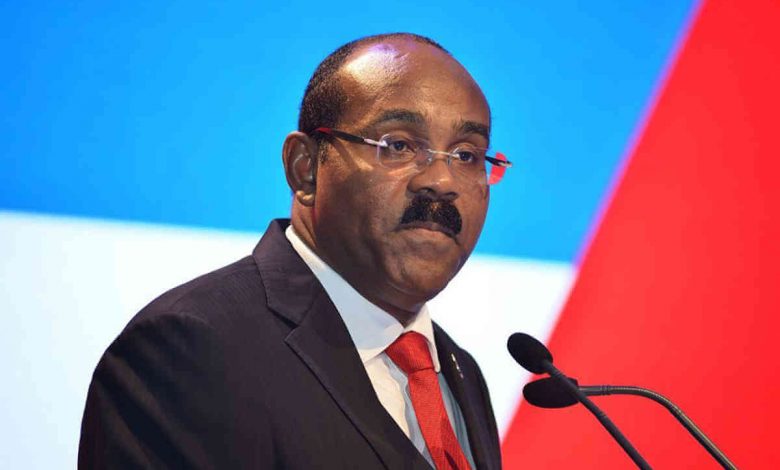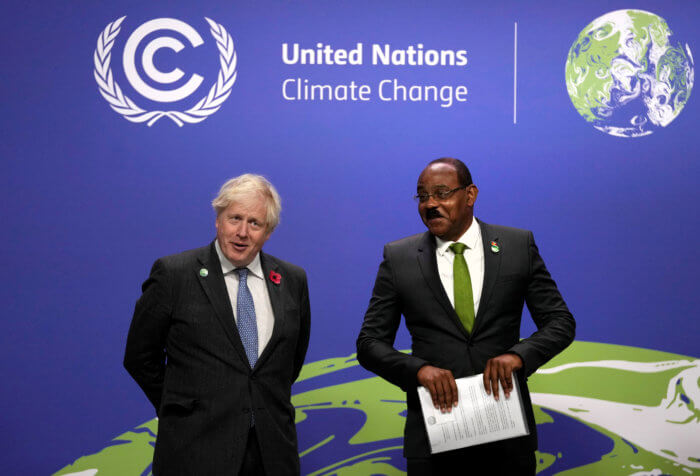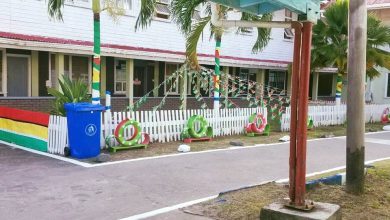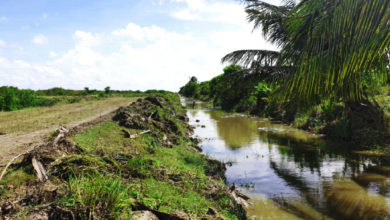CLIMATE JUSTICE SOUGHT

Tired of borrowing or begging for grant aid and concessional financing to repair damaged infrastructure after annual hurricanes and devastating floods, a group of Third World nations plans to begin taking the world’s largest polluting nations to umbrella world courts to recover monies spent constantly rebuilding economies.
The plan to take legal action was discussed among Small Island Developing States (SIDS) during the ongoing climate change conference (COP 26) in Scotland in recent days with wide agreement for these nations to determine what form of legal action can be taken against western and other nations whose actions result in drastically changing weather patterns that eventually hurt the Third World the most.
CARICOM Chairman and Antiguan Prime Minister, Gaston Browne said the SIDS group recently formed the commission of Small Island States on Climate Change and International Law will provide just the mechanism developing nations need to increase clout to make the worlds’ largest emitting nations and companies pay for their actions. The issue was also discussed at the CARICOM leaders preparatory summit for COP as well as the regional foreign ministers forum in recent weeks.
Documents to establish the commission were signed in Scotland on Sunday with Browne noting that “it is the heavy polluters who are the ones who are creating the problem and as far as we see, the polluter must pay. There has to be a mechanism to allow for compensation for loss and damage, which incidentally is one of the areas that was not discussed in any significant way at this event. SIDS collectively contribute less than one percent of global carbon emissions, yet are arguably most vulnerable to the effects of climate change,” he argued while speaking to international media in Glasgow.

The Caribbean, Central America and the United States mainland have been recording the strongest set of hurricanes on record in the past four years with three of them-Irma, Maria and Dorian-being classified as mega or superstorms clocking winds beyond the dreaded Category Five ceiling of above 150 miles per hour. These three did untold damage in the region wiping out communities from Dominica in the Eastern Caribbean to some of the islands in The Bahamas.
The CARICOM chair said the commission will write to the International Tribunal for the Law of the Sea to obtain a legal opinion on the way forward to make polluters pay for their actions and for SIDS countries “to achieve climate justice.” He also criticized the richer western nations for reneging on promises made 12 years ago to provide $100 billion annually in climate change financing, noting the SIDS group is aware that financing to the Third World has declined by more than $6000 between 2018-19. On the other hand, these same countries have, since the now infamous Paris summit in 2015, provided over $3 trillion dollars to support their own coal, oil and gas and other fossil fuel industries, most of which are heavy contributors to pollution and global warming.
Several other leaders who spoke at the conference bemoaned the state of play, especially as it relates to the lack of concessional climate financing and the burdens countries have to bear to rebuild after natural disasters. Others complained about rising ocean temperatures and the havoc this is wreaking on coral reefs in a tourism dependent region, reminding the world like PM Mottley of Barbados that the globe cannot afford a temperature rise above 1.5 degree Celsius.
“1.5 degrees is what we need to survive, 2 degrees is a death sentence for the people. For the people of countries like Antigua and Barbuda and Barbados in the Caribbean, in addition to countries like the Samoa in the Pacific, the Maldives, Kenya and Mozambique, among others, We do not want that dreaded death sentence and we are here today to say try harder because our people, the climate army, the world, the planet needs our action now, not next year not in the next decade,” she said as several in the audience nodded in agreement.




